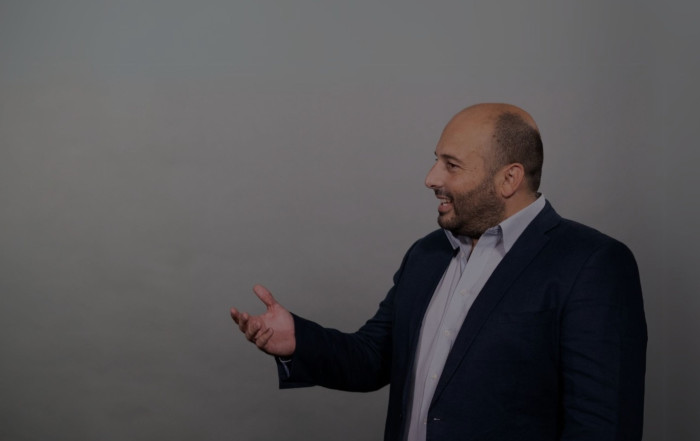As a therapist working closely with couples and individuals in high-conflict relationships, I have seen the full emotional arc of love, from intimacy and connection to disappointment, betrayal, and sometimes, rage. It is during these moments of rupture that serious allegations can emerge: domestic violence, sexual harassment, parental alienation, coercive control. These are not just theoretical terms; they are real, lived experiences; however, how we respond to them as a society matters deeply.
In recent years, public platforms, from TikTok to podcasts to Instagram, have become the new courtrooms. Stories of abuse and betrayal are now often shared not through legal channels but online. Sometimes the person accused is never even questioned by police, let alone charged. The public, with limited information, is asked to take sides, and many do. But in doing so, we risk something grave: mistaking emotion for evidence, and popularity for truth.
Valid Feelings vs. Verified Facts
It’s crucial to acknowledge this: feeling wronged is not the same as being wronged. Emotional pain is real and often justified. But justice, true justice, requires more than hurt. It requires verification. That’s why, across centuries, societies have created courts: to remove personal biases and apply consistent principles to emotionally charged situations.
When we bypass this process and try people through social media posts or one-sided interviews, we are not offering justice; we are offering performance. In this performance, the accused may have no right of reply, no chance to challenge claims, and no space for context. That is not fairness. It’s public judgment dressed up as advocacy.
Why Survivors Speak Out Publicly
Of course, it would be deeply unjust to ignore why people choose to go public in the first place. Many survivors, especially women and marginalised individuals, report feeling unheard, dismissed, or retraumatised by formal systems. Some have seen cases dropped for “lack of evidence”, despite the truth of their experiences. Others face real barriers to reporting, from fear of retaliation to complex family dynamics.
The #MeToo movement and similar efforts have shown us that public storytelling can be powerful. It can expose patterns of harm, shift culture, and empower others to speak. In that sense, these platforms have filled a vacuum left by slow-moving or historically dismissive institutions.
But this doesn’t mean every public accusation is proof of guilt, or we should abandon the need for scrutiny, context, and fairness. Justice systems may be flawed, but abandoning them altogether is not the solution.
The Risk of Weaponising Allegations
In high-conflict divorces or custody disputes, therapists and lawyers alike have seen how language around abuse can sometimes be used strategically. Parental alienation, for example, is a real phenomenon, but the term is also sometimes misused to silence valid concerns. The same applies to claims of harassment or emotional abuse: valid in many cases, but occasionally exaggerated or distorted in ways that undermine both due process and the rights of genuine victims.
False allegations remain the minority, but when they occur, especially online, without the filter of investigation, they cause irreversible damage. A man accused of being abusive in a podcast may never recover his reputation, even if no police report is ever filed and no court ever finds wrongdoing. The tragedy here is twofold: one person is socially destroyed, and real victims may be taken less seriously in the future because of the public’s growing scepticism.
A Shared Responsibility
Podcasters, influencers, and media outlets must remember that they are not immune to ethical responsibility. Telling only one side of a story, especially when it includes serious allegations, without offering a right of reply can have severe real-world consequences. While audience engagement is important, it should not come at the cost of justice.
Likewise, members of the public must develop greater media literacy. When consuming emotionally intense content online, ask:
-
Has this claim been investigated by police or a court?
-
Why is only one side being amplified?
-
Has the accused had the chance to respond?
-
What might I not be seeing?
Listening to someone’s story is important, but so is asking the right questions, especially when the consequences involve reputations, careers, families, and futures.
What Justice Needs from Us
Justice is not a feeling. It’s a process that must protect both the accuser and the accused. To believe in justice is to believe in balance, scrutiny, and fairness, not blind loyalty to the first version of the story we hear.
This is not a call to silence victims, nor is it a plea to disbelieve painful stories. It is a call to protect the process that allows truth to emerge through structure, not speculation.
We can hold space for survivors, listen deeply, and demand better from our institutions without handing out social sentences before establishing legal facts.
We must learn to sit with complexity in an age where stories spread faster than facts. The court of public opinion may feel righteous, but only real courts are designed to deliver justice. Let’s not forget that.
References
Fidler, B. J., & Bala, N. (2020). High-conflict custody cases: Protecting children and promoting resolution. Journal of Child Custody, 17(1), 1–28.
Harcourt, B. E. (2020). Critique and Praxis. Columbia University Press.
Johnston, J. R., & Sullivan, M. J. (2020). Parental alienation: In search of common ground for a more differentiated theory. Family Court Review, 58(2), 270–292.
Lisak, D., Gardinier, L., Nicksa, S. C., & Cote, A. M. (2010). False allegations of sexual assault: An analysis of ten years of reported cases. Violence Against Women, 16(12), 1318–1334.
Lewandowsky, S., Ecker, U. K., Seifert, C. M., Schwarz, N., & Cook, J. (2012). Misinformation and its correction: Continued influence and successful debiasing. Psychological Science in the Public Interest, 13(3), 106–131.
Jackson, S. J., Bailey, M., & Foucault Welles, B. (2020). #HashtagActivism: Networks of Race and Gender Justice. MIT Press.
Share this Blog
Recent Thoughts
Rumours, Noise and Real Growth: Learning to Keep My Eyes on the Road
“Matthew is a closeted gay.”“Matthew jumps from woman to woman.”“He’s money-minded.”“I’ve heard he sees women for free if they ‘offer favours’.”“I’ve heard he’s
Ikigai vs. Workaholism: Why I’ve Given Up Perfectionism and Workaholic Tendencies
1) Facing Challenges Head-On Throughout my career, I've always faced problems head-on. Confronting challenges directly is part of who I am. However, there





